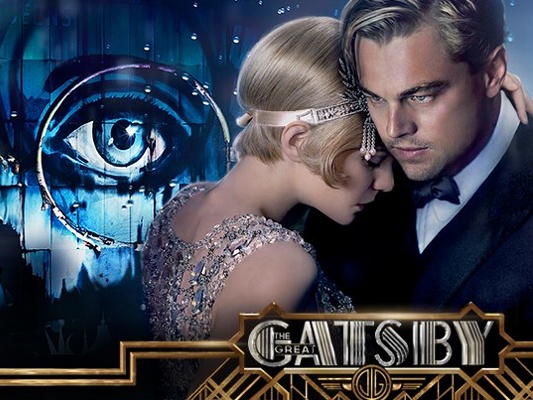
A great lesson from The Great Gatsby
|
Getting your Trinity Audio player ready...
|
The Great Gatsby has opened to mixed reviews. This is the fifth time someone has tried to achieve in film what the famous novel achieved in written word. There is a Japanese proverb that says, “One written word is worth a thousand pieces of gold.” I think F. Scott Fitzgerald and King Solomon would agree with that. Both men had a profound, compelling message they wanted to tell their cultures.
F. Scott Fitzgerald wrote The Great Gatsby for some of the same reasons King Solomon wrote the book of Ecclesiastes. They both wanted the next generations to learn from their mistakes. The Great Gatsby and Ecclesiastes are, in many ways, an inside look into the lives of the authors. Interestingly, the themes of the novel and the book of the Bible are similar and still relevant today. Why? Because human nature does not change. Culture is simply a reflection of human nature at its current trajectory. How do the words of F. Scott Fitzgerald and King Solomon apply to our way of life today?
The Great Gatsby is one of the finest windows in which to glimpse the culture of the Roaring Twenties. Our nation’s soldiers had returned from World War I and could not reconcile all they had seen on the battlefields with the shallow pride of the American aristocracy. The piety of the organized church focused on preserving an appearance of devotion, but empty worship services left many of these young men without spiritual direction they could trust. Many, like Gatsby, pursued money, and the big money was gained by bootlegging and achieving social status with its powerful connections. Many of the young women pursued those young men, believing them to be their best road to success and happiness. Marriage partners were chosen for reasons other than love and commitment. Fitzgerald and King Solomon wrote these words to that way of thinking:
“A phrase began to beat in my ears with a sort of heady excitement: ‘There are only the pursued, the pursuing, the busy, and the tired.'”- F. Scott Fitzgerald, The Great Gatsby, Ch. 4
“Yet when I surveyed all that my hands had done and what I had toiled to achieve, everything was meaningless, a chasing after the wind; nothing was gained under the sun” Ecclesiastes 2:11.
Both Fitzgerald and King Solomon achieved a great deal of financial success, social status and personal gain. Both men reached the end of their lives and realized they had spent most of their time and energy pursuing what didn’t really matter. The Apostle Paul understood human nature as well. He taught Timothy, his student in the faith this lesson: “But you, man of God, flee from all this, and pursue righteousness, godliness, faith, love, endurance and gentleness” (1 Timothy 6:11). The author, the King and the Apostle would ask each of us today, “Are you pursuing the things that really matter in this life?”
A Great Awakening was followed by a Great War. The Great War was followed by The Great Gatsby. The era that followed that of the Great Gatsby’s was the Great Depression.
King David was followed by King Solomon. King Solomon was followed by King Rehoboam – whose leadership caused the nation of Israel to split and eventually shatter. History is the best picture of the consistencies of human nature. Our authors said it this way:
“Gatsby believed in the green light, the orgiastic future that year by year recedes before us. It eluded us then, but that’s no matter–tomorrow we will run faster, stretch out our arms farther…. And one fine morning– So we beat on, boats against the current, borne back ceaselessly into the past.” – F. Scott Fitzgerald, The Great Gatsby, Ch. 9
What has been will be again, what has been done will be done again; there is nothing new under the sun. Ecclesiastes 1:9
The weaknesses we see in our culture today are not new, in fact they are timeless. Sometimes it is good to use history for headlights, always remembering, headlights only illuminate what is our immanent future. Christians know what is at the end of the road . . . and what needs to matter until we get there.
“I see now that this has been a story of the West, after all–Tom and Gatsby, Daisy and Jordan and I, were all Westerners, and perhaps we possessed some deficiency in common which made us subtly unadaptable to Eastern life.” – F. Scott Fitzgerald, The Great Gatsby, Ch. 9
“Now all has been heard; here is the conclusion of the matter: fear God and keep his commandments, for this is the duty of all mankind” (Ecclesiastes 12:13).
Christians aren’t at home in our culture, because we aren’t at home in the world. It has always been true that we want to belong, and we usually try to belong. It has always been true, that at the end our our lives, we will realize that the time we spent pursuing “righteousness, godliness, faith, love, endurance and gentleness” will be the moments we realize held value. That is the great lesson from The Great Gatsby and, more importantly, from our great God. I’m only going to write one blog this week so that I can focus on writing Bible study. So, to all my readers, I hope you have a “GREAT” week!
{jcomments lock}
{jcomments lock}
